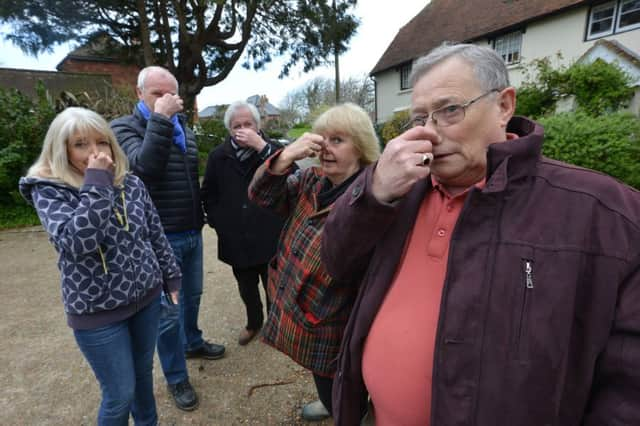Sniffing-out the source of the ‘Piddinghoe Pong’


The ‘Piddinghoe Pong’ manifested itself last month and has upset the locals.
Bill Pierce said that on some days you would need to wear a mask to ward off its effects.
Advertisement
Hide AdAdvertisement
Hide AdHe said this week: “A heavy, pungent smell of what seems to be human effluent has been hanging in the air for more than two weeks.
“It comes and goes and many people have put it down to muck-spreading in the fields of the surrounding farms. Another theory is that it is sheep effluent or something in the river. Whatever it is it has been hanging around far too long.”
Mr Pierce, of Cedarwell Close, Piddinghoe, said there had been many complaints to Lewes District Council even though there are only about 280 people living in the village.
He said that on Monday the smell was particularly strong and he had “seen visitors holding hankies to their mouths as they walk through”.
Advertisement
Hide AdAdvertisement
Hide AdHe added: “I’ve been here 11 years and the smell has never been this invasive.”
On Wednesday it emerged that Piddinghoe Pong was caused by ‘biosolids’ – a term used for several types of treated sewage sludges that can be used as soil conditioner.
Treated sewage sludge has long been used in agriculture, but has raised concerns about offensive odours and disease risks from pathogens and toxic chemicals.
A spokesperson for Lewes District Council said: “A local farmer is using biosolids to fertilise his land. This type of fertiliser is commonly used in the farming industry.
Advertisement
Hide AdAdvertisement
Hide Ad“We are liaising with the farmer and encouraging him to plough the fertiliser into his land as quickly as possible to keep further odours to a minimum.”
The Southern Water website said the company provides farmers with a complete biosolid recycling service through its contractors MTS and ACS.
It said: “Sewage sludge is formed at every stage of the wastewater treatment process. As early as 1995, we committed to recycling all sludge as treated biosolids.
“Biosolids are usually treated in large tanks called digesters and much of the water is removed to produce a material that can be spread on fields used for growing crops. Biosolids provide nutrients to soil and plants, enabling farmers to replace some man-made fertilisers. This saves not only money but also the energy and environmental impacts associated with fertiliser production.”